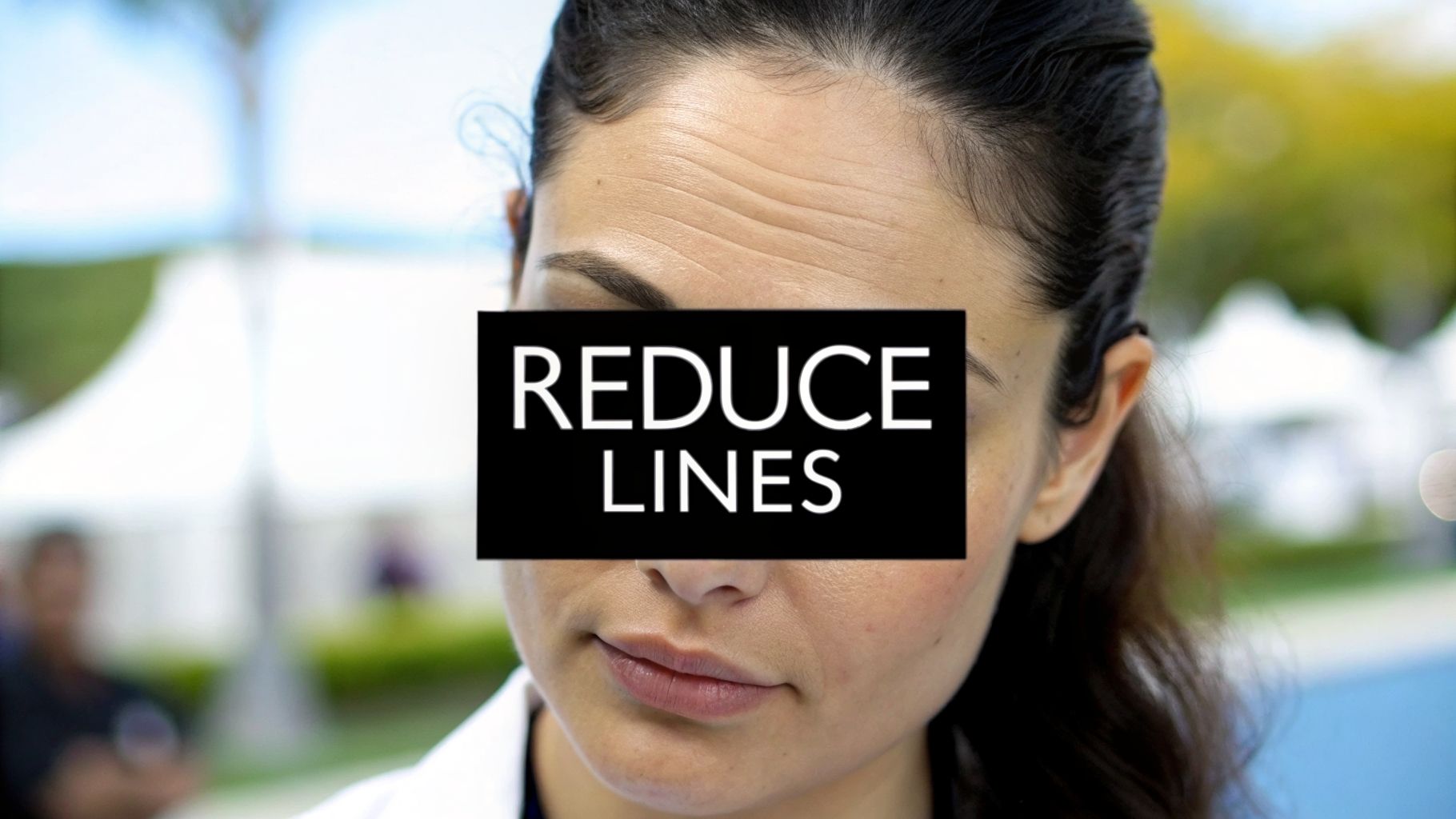
February 23, 2026
How to Reduce Frown Lines Your Complete Guide
Discover how to reduce frown lines with expert-backed tips on skincare, lifestyle changes, and professional treatments that deliver real, lasting results.
Nov 24, 2025

Strict adherence to your surgeon's instructions is fundamental for a safe and efficient recovery. These guidelines cover medication schedules, wound care, activity levels, and follow-up visits, all tailored to promote optimal healing and minimize complications.
Every patient's recovery journey is unique. Personalized care, delivered by skilled surgeons and healthcare teams, ensures treatment plans are adapted to individual needs, enhancing outcomes and patient comfort.
Successful recovery depends on several essentials: maintaining proper nutrition and hydration, managing pain effectively, ensuring wound cleanliness, and gradually reintroducing activity, such as walking, to improve circulation. Additionally, support from family or caregivers facilitates daily tasks and emergency readiness, especially in the initial days post-surgery.

The medical practice at Cape Cod Plastic Surgery is led by Dr. Marc Fater, a distinguished specialist in plastic and reconstructive surgery. Dr. Fater brings extensive experience and a patient-centered philosophy to the practice, ensuring each individual receives personalized attention and care. Based in a modern, accredited facility in Hyannis, Massachusetts, his leadership upholds a standard of excellence focused on safety, innovative techniques, and outstanding results.
With a comprehensive portfolio of services, Cape Cod Plastic Surgery addresses both cosmetic and reconstructive needs. Their offerings include breast procedures such as augmentation, lifts, and reductions, and body contouring surgeries like tummy tucks and arm or thigh lifts. Facial rejuvenation services include facelifts, brow lifts, and eyelid surgery, complemented by non-surgical treatments like injectables and fat reduction technologies. The team delivers customized care plans to ensure natural-looking outcomes that align with patient goals.
Patient safety and quality care at Cape Cod Plastic Surgery are prioritized through meticulous planning and adherence to rigorous medical standards. The facility incorporates cutting-edge technology within its accredited setting, while Dr. Fater and his team emphasize thorough patient education and transparent consultations. Ongoing staff training and strict protocols help maintain a secure and supportive environment, allowing patients to feel confident throughout their surgical journey.

Effectively managing pain after surgery is essential to promote healing and comfort. Patients should follow their surgeon’s pain medication guidelines closely, taking medications exactly as prescribed. Over-the-counter pain relievers can be useful when taken in staggered doses to avoid using opioids unnecessarily. Importantly, pain medication should not be taken on an empty stomach to prevent nausea and dizziness.
Applying ice packs to the surgical area helps reduce swelling and discomfort. Ice should never be placed directly on the skin and must be used intermittently, changing packs frequently to avoid damage. See Guidelines for Icing Post-Op.
Completing the full course of prescribed antibiotics is critical to prevent infections and promote optimal recovery. Patients must avoid skipping doses and should not stop antibiotics prematurely unless directed by their healthcare provider. For more, review Proper Use of Antibiotics.
Regular inspection of the surgical site can detect infections early. Patients should watch for increased incision redness, warmth, swelling, unusual drainage, or excessive pain around the incision. Immediate medical contact is necessary if these symptoms or fever over 101°F develop. Learn more about signs of infection and when to contact your physician.
Having a thermometer to monitor fever at home allows patients to track their temperature as a sign of potential infection. Early detection of fever can prompt timely intervention. See also monitoring temperature post-operation.
Antibiotics play a vital role in preventing and treating post-operative infections when taken as directed. Adherence to the prescribed regimen ensures the best outcomes and reduces complications. For guidance, refer to completing prescribed antibiotics.
Together, these practices reflect the clinic’s commitment to patient-centered post-operative care and safe recovery, harnessing advanced surgical care and personalized instructions to enhance healing and patient confidence.

Proper nutrition plays a vital role in Recovery after surgery by supplying your body with the energy, protein, and nutrients required for tissue repair and immune support.
High-protein foods such as beans for protein, chicken for healing, eggs for recovery, fish as protein source, Greek yogurt benefits, and nuts and seeds protein help rebuild damaged tissues. Vitamins like A, C, and E, along with zinc and omega-3 fatty acids, reduce inflammation and promote wound healing.
Including high-protein snacks and meals in your diet accelerates healing. Recommended options include:
Adequate hydration is essential for overall health and supports healing by improving circulation and reducing anesthesia side effects like a dry throat.
Drinking plenty of water helps your body detoxify and maintains optimal cell function during recovery. See more about Hydration after surgery.
Getting out of bed and Walking after surgery several times daily soon after surgery boosts blood flow, reducing risks of complications such as blood clots, pneumonia, and muscle weakening.
Gradual mobilization fosters faster return to normal activities and reduces stiffness.
Prolonged immobility can lead to harmful effects including blood clots, pressure ulcers, delayed healing, and respiratory issues like pneumonia.
Maintaining gentle activity prevents these problems and supports overall recovery. Learn more about Preventing blood clots after surgery and Importance of mobility after surgery.
Follow your surgeon’s guidelines when resuming exercise and physical effort. Avoid heavy lifting and strenuous movements until cleared. Listen to your body, gradually increasing activity while avoiding pain or excessive fatigue. See Post-surgery care instructions and Activity restrictions post-surgery for detailed guidance.

After surgery, it is essential to care for your incision properly to support optimal healing. Keep dressings on for the first 48 hours and change them as directed by your surgeon. Gently wash the incision area with warm water and mild soap when advised, avoiding scrubbing or using harsh substances like alcohol or peroxide that can delay healing. See detailed How to change bandages after surgery.
You may typically shower 24 to 48 hours post-surgery once dressings have been removed or adjusted. However, avoid baths, swimming, or soaking the wound for at least 14 days to reduce the risk of infection. Learn more about When to shower after surgery and Avoiding baths and swimming post-surgery.
Scars are sensitive as they heal and can take 8 to 12 months to mature fully. Begin gentle scar massage around two weeks after surgery to improve appearance and softness. Consistent use of a broad-spectrum waterproof sunscreen with SPF 30 or higher is crucial to protect new scars from sun exposure and prevent discoloration. For more information, see Scar massage after surgery and Protecting scars from sunlight.
Suture removal typically occurs within 5-7 days for facial incisions and up to two weeks for extremities, with some sutures being dissolvable. Swelling is common initially but should steadily decrease. Full scar maturation takes many months. Refer to Timing of suture removal and Healing time for incisions and sutures.
Attending scheduled follow-up appointments, usually at two and six weeks post-operation, allows your surgeon to monitor healing progress, manage complications early, and tailor further care. Understand the importance of Follow-up appointments post-surgery and Importance of follow-up appointments.
During recovery, avoid strenuous activities, heavy lifting, and driving until your surgeon grants clearance. This cautious approach prevents strain on your incision and reduces the risk of complications. Review Activity restrictions post-surgery and When to resume driving after surgery.
By adhering to these post-operative incision care and scar care guidelines and maintaining communication with your surgeon, you can promote effective recovery and achieve the best possible outcomes.

Having a dedicated Support person post-surgery for the first 48 to 72 hours after surgery significantly enhances recovery. This individual helps manage Medication management after surgery, assists with daily tasks such as bathroom needs, and responds to emergencies. Their presence reduces risks associated with early post-operative periods, ensuring patient safety during a vulnerable time.
Smoking, including exposure to second-hand smoke, negatively impacts healing by reducing oxygen delivery to tissues. This can lead to delayed wound healing, increased bruising, and complications. Patients are strongly advised to refrain from smoking (see Smoking and Healing) at least two weeks before and after surgery to optimize recovery outcomes.
It is critical to recognize signs of infection early. Contact your doctor immediately if you experience:
Recovery is not solely physical; emotional and mental health are equally important. Patients should seek support from friends and family or professionals to manage anxiety, depression, or stress that may arise. This holistic approach supports motivation, adherence to care plans, and overall healing.
Planning adequate time off work is essential. Recovery times vary by procedure—from a few days for minor surgeries to several weeks or months for major operations. A gradual return to activity, guided by surgeon recommendations, helps avoid setbacks (Post-surgery care instructions). Starting gentle walking for blood circulation soon after surgery improves circulation but overexertion should be avoided to prevent complications.
Avoid doing too much too soon. Overexertion, including heavy lifting and rapid return to strenuous activities, can cause pain, injury, and delay healing (Mistakes to avoid after surgery). Skipping medications, neglecting Nutrition and hydration after surgery, and isolating oneself are other common pitfalls. Following prescribed activity restrictions post-surgery and maintaining open communication with healthcare providers promote smoother, safer recovery.
To ensure a smooth and successful recovery, it is vital to follow several key practices: maintain good nutrition with plenty of protein and vitamins, stay hydrated, manage pain effectively as prescribed, and engage in gentle movement such as walking to promote circulation and prevent complications. Avoid smoking and strenuous activities until cleared by your surgeon. Regularly monitor your surgical site for signs of infection and maintain all follow-up appointments.
Adhering strictly to your surgeon’s personalized instructions is crucial. This includes medication schedules, wound care, activity restrictions, and attending scheduled follow-up visits. Such diligence not only prevents complications but also fosters optimal healing and long-term results.
UMass Memorial Medical Group - Cape Cod Plastic Surgery prides itself on delivering patient-centered care with tailored surgical and recovery plans. Our experienced, board-certified surgeons prioritize your safety, comfort, and satisfaction throughout your healing journey. Trusting in their expertise, combined with your active participation in recovery, creates the foundation for the best possible outcomes and enhanced confidence in your appearance.

February 23, 2026
Discover how to reduce frown lines with expert-backed tips on skincare, lifestyle changes, and professional treatments that deliver real, lasting results.

February 22, 2026
Learn how to minimize bruising after surgery with our expert guide. We share preoperative and postoperative tips for a faster, smoother recovery.

February 21, 2026
Discover how to prevent keloid scars after surgery with our definitive guide. Learn expert strategies for risk assessment, surgery, and post-op scar care.